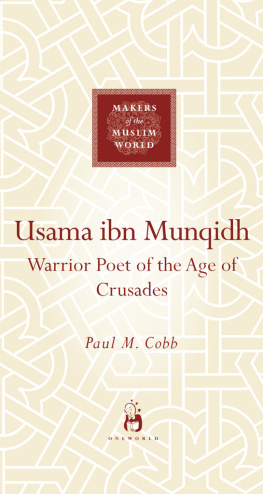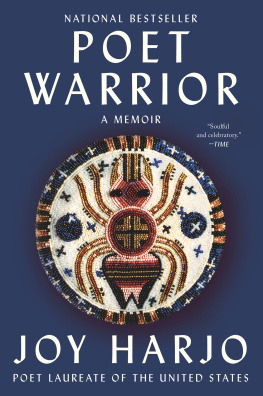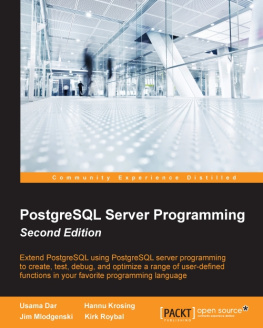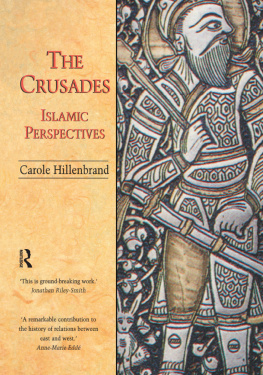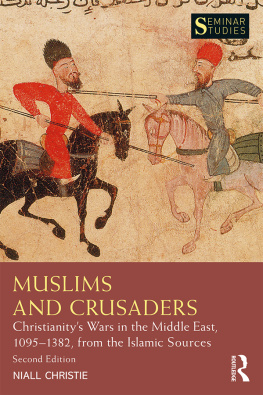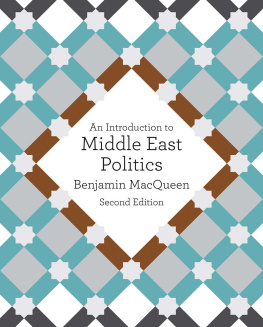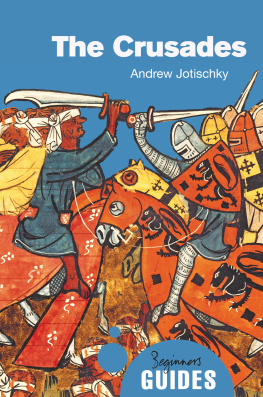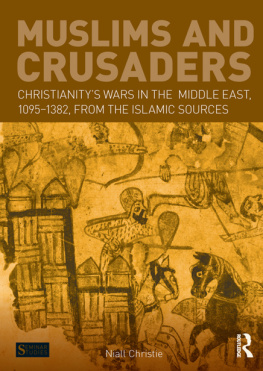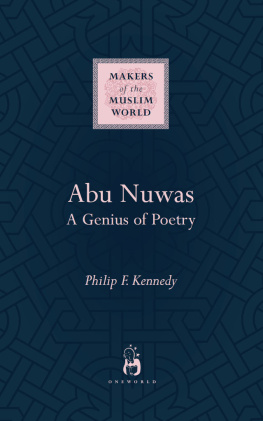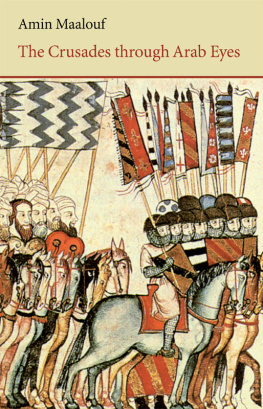
Usama ibn Munqidh
Paul Cobb has written a vibrant, comprehensive biography of Usama ibn Munqidh, the Syrian emir whose stories, especially those relating to Muslim-Frankish encounters, have fascinated generations of historians and undergraduate students.
PROFESSOR BENJAMIN Z. KEDAR
SELECTION OF TITLES IN THE MAKERS OF
THE MUSLIM WORLD SERIES
Series editor: Patricia Crone,
Institute for Advanced Study, Princeton
Abd al-Malik, Chase F. Robinson
Abd al-Rahman III, Maribel Fierro
Abu Nuwas, Philip Kennedy
Ahmad ibn Hanbal, Christopher Melchert
Ahmad Riza Khan Barelwi, Usha Sanyal
Al-Mamun, Michael Cooperson
Al-Mutanabbi, Margaret Larkin
Amir Khusraw, Sunil Sharma
Beshir Agha, Jane Hathaway
Fazlallah Astarabadi and the Hurufis, Shazad Bashir
Ibn Arabi, William C. Chittick
Ibn Fudi, Ahmad Dallal
Ikhwan al-Safa, Godefroid de Callata
Shaykh Mufid, Tamima Bayhom-Daou
For current information and details of other books in the series, please visit
www.oneworld-publications.com/subjects/makers-of-muslim-world.htm

USAMA IBN MUNQIDH
Oneworld Publications
10 Bloomsbury Street
London WC1B 3SR
England
2005 Paul M. Cobb
This ebook edition published in 2012
All rights reserved
Copyright under Berne Convention
A CIP record for this title is available
from the British Library
ISBN 978 1851684038
eISBN 978 1780741970
Typeset by Sparks, Oxford, UK
Cover and text design by Design Deluxe
Stay up to date with the latest books, special offers, and exclusive content from Oneworld with our monthly newsletter
Sign up on our website
www.oneworld-publications.com
TO THE MEMORY OF GOLIARD BOOKSHOP
SO I WRITE POETS ALL
THEIR SUMMER LASTS A SOLID YEAR
PREFACE
There is no heroic poem in the world but is at bottom a biography, the life of a man; also it may be said, there is no life of a man, faithfully recorded, but is a heroic poem of its sort, rhymed or unrhymed.
Thomas Carlyle (1838)
In the summer of 1880, the French scholar Hartwig Derenbourg discovered a manuscript in a box in the Escorial Library in Madrid. In a certain sense, in that box, Derenbourg also discovered a person.
The manuscript turned out to be the sole surviving copy of a book called in Arabic Kitab al-Itibar, or The Book of Learning by Example, usually referred to these days as the memoirs of a medieval Muslim warrior and poet from the period of the Crusades, Usama ibn Munqidh. Born in 1095, the year Pope Urban II proclaimed the First Crusade, and dying in 1188, just months after the Muslims recaptured Jerusalem, Usama virtually embodies the age of the Crusades. In his day a famed poet and man of letters, the son of a noble Arab family famed for its courage and courtliness, Usama lived an unusually adventurous life, serving as a commander and adviser to some of the most famous rulers of the medieval Middle East during a pivotal epoch in world history. As the great Turkish warlords faced the threat of the Crusader states in Syria, Usama was there. As the rulers of Egypt saw their empire collapse around them, Usama was there, and as the near-legendary Saladin launched his counter-crusade, Usama was there to tell us all about it in his poems and his autobiographical musings. Before Derenbourgs discovery, Usama was almost completely unknown to the world and so, in an important way, Usama is the child of his philological loins. Derenbourg was the first to note the incredible historical and cultural value of the Book of Learning and the first to try his hand at editing and translating this difficult and incomplete text. Moreover, he was the first to assemble as much as he could find of snippets of texts by and about Usama quoted in other medieval Arabic works. And, most importantly, he was the first to gather all this material and to attempt to stitch it all together in a chronological sequence and compose a biography (Derenbourg, Vie, 1889).
Some sense of this pioneering achievement can be gained when we consider that his biography of Usama weighs in at 731 pages, and that it is only the first part of a larger study containing textual editions, translations, and scholarly digressions, a totality that, I can attest, comes close to transgressing current guidelines for carry-on luggage on several major international airlines. All this in an era when the vast majority of the texts were unedited and unprinted, meaning that he could consult them only in manuscript form, in scattered (and generally uncataloged) collections in Europe and the Middle East. In short, without Derenbourgs genetic exertions, there would be no Usama as we know him today.
While better editions and better translations have replaced Derenbourgs, his biography of Usama remains a monument of nineteenth-century scholarship on the medieval Islamic world. This little book in no way attempts to alter that. Rather, it aims to add a level, by offering, in English, a short and readable biography that is intended to be accessible to the non-specialist as well as to present a birds-eye view of the world in which Usama lived and to assess the degree to which he can be said to have contributed to it. Was Usama, for all his political and literary feats, really a Maker of the Muslim World? That is the question that this slim biography will address. If this book advances a point here or there at the expense of previous scholarship, then this is thanks solely to the existence of definitive edited texts, some of them unknown to Derenbourg, and to a further century of scholarship on the medieval Islamic world. Finally, if this book should encourage interested readers to learn more about the medieval Middle East and the history and literature that both Usama and Derenbourg loved, then I will be doubly gratified.
What this book does that Derenbourg was not able to do is to take into account much of Usamas literary output that was either unknown or unavailable in the 1880s, including his poetry anthology and many other works that are of biographical and literary interest (see list below). Thanks to Derenbourg, and to Philip Hittis very popular English translation of Usamas memoirs, Usama has become famous as a Muslim observer of the Franks, and, to some, as a warrior and model of medieval Islamic chivalry. But he was known to his peers primarily as a man of letters, and it is this aspect of Usamas life that I have tried to reaffirm in this book. The texts by and about Usama that have come to light since Derenbourgs time have been especially useful in this regard. Although this book is thus intended for first-time visitors to medieval Islamic history, I hope specialists may find in it a few things that are new to them.
A note about citation: in an attempt to make this life of a medieval Muslim as accessible as possible, I have not cluttered the text with citations, except when identifying quotations or possibly contentious statements, when I include short citations to the sources in parentheses. The bibliography at the end of the book thus represents only those works cited in the text, not the many other works I consulted. In keeping with the goals of this series, I also include some suggestions for further reading. In this book, all translations are my own, with the exception of quotations from Usamas memoirs, which are those of Hitti, often with some slight emendations. Where applicable, I cite sources using the page number of the edited medieval text (Arabic, Latin, or Syriac) followed by the page number of any existing translation, separated by a /. When citing Usamas own works, I use the following abbreviations (asterisk indicates a text unknown to Derenbourg):
Next page
